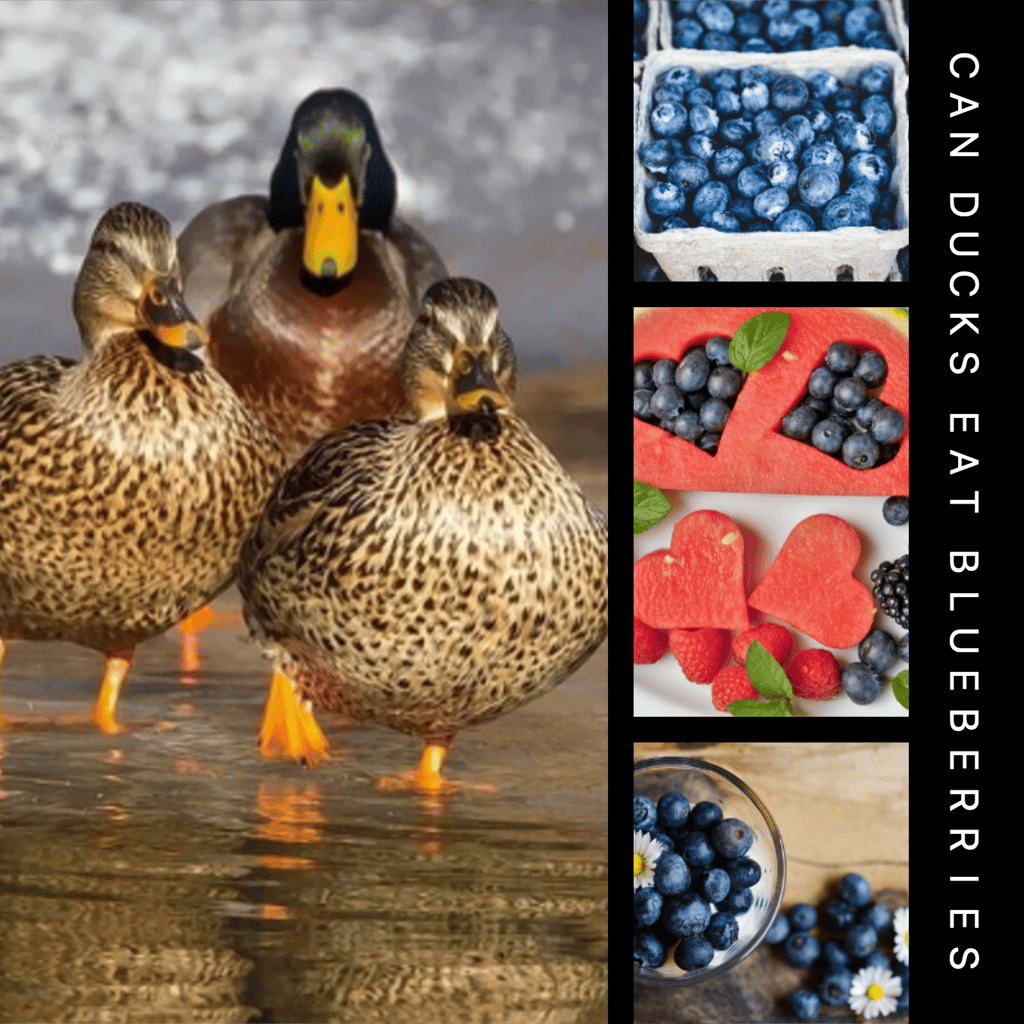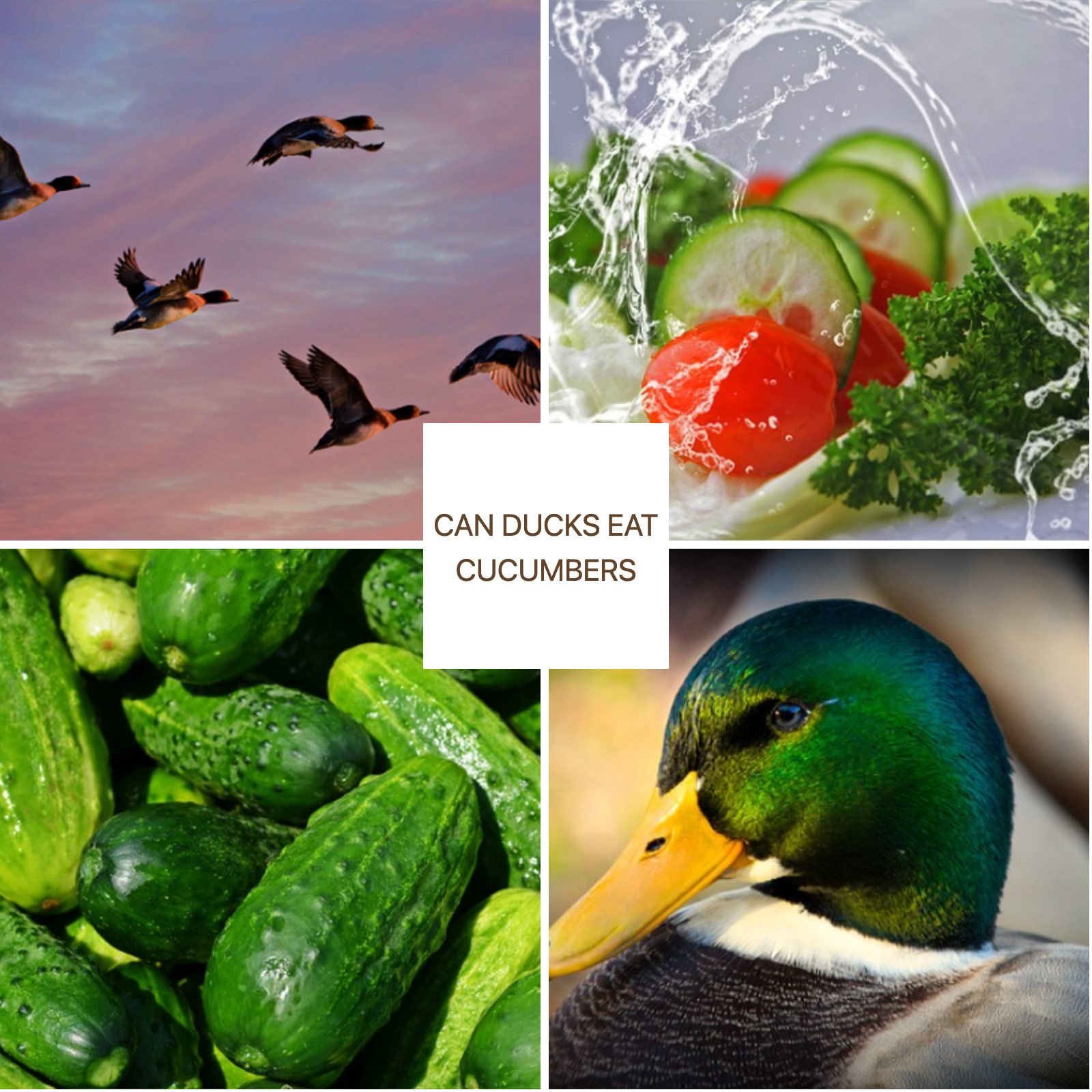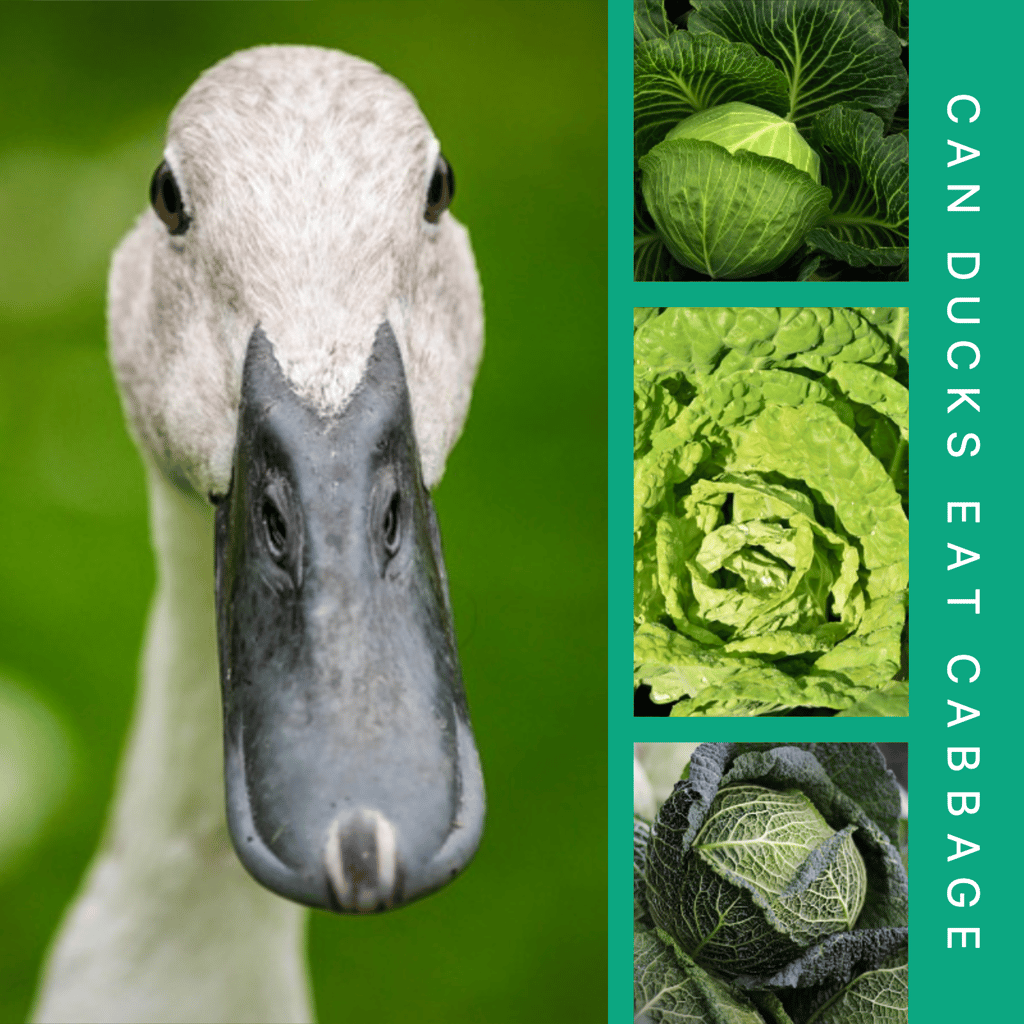The Natural Diet of Ducks

Ducks are omnivorous birds that have a diverse diet consisting of both plant matter and animal protein. In their natural habitat, ducks primarily feed on aquatic plants, seeds, insects, small fish, and crustaceans. Their beak is specialized for foraging in water and mud, allowing them to filter out small organisms and extract nutrients from various food sources.
When it comes to their plant-based diet, ducks consume a variety of vegetation including grasses, leaves, roots, and seeds. They are known to graze on the surface of water bodies, feeding on floating plants and algae. Additionally, ducks also have a preference for certain grains and fruits that are easily accessible.
While ducks are adaptable and can consume a wide range of foods, it's important to consider their nutritional needs and the potential impact of certain foods on their well-being.
| Common Foods in a Duck's Natural Diet | Occasional Foods in a Duck's Natural Diet |
|---|---|
| Aquatic plants (e.g., watercress, duckweed) | Insects (e.g., mosquitoes, dragonflies) |
| Seeds (e.g., grasses, sedges) | Small fish (e.g., minnows, tadpoles) |
| Grasses and leaves | Crustaceans (e.g., shrimp, crayfish) |
| Roots and tubers | - |
These are just a few examples of the food items that are commonly found in a duck's natural diet. Understanding their natural feeding patterns helps us determine the compatibility of certain foods, such as blueberries, with their digestive system.
Understanding the Nutritional Needs of Ducks
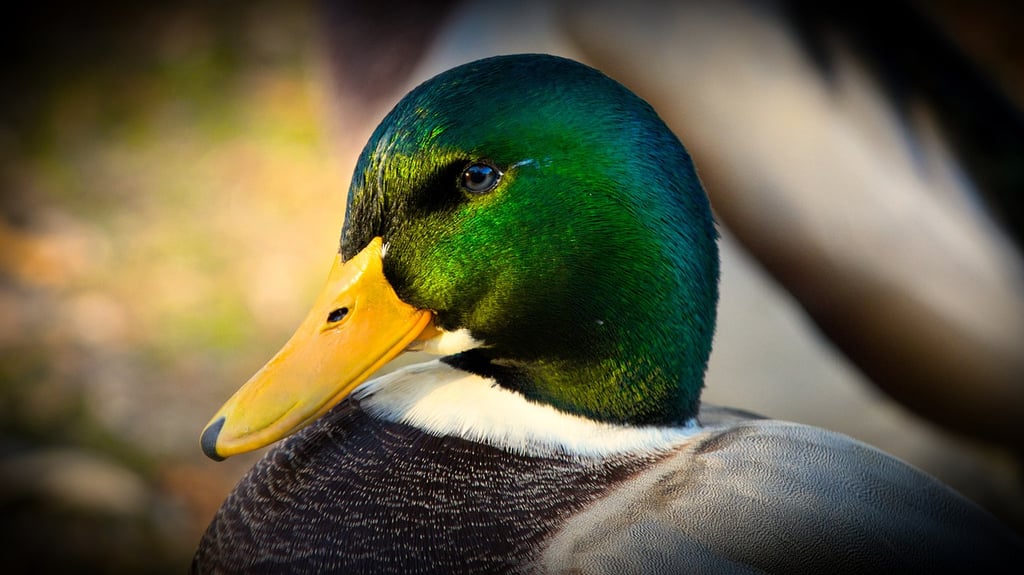
Ducks are omnivorous animals, meaning they have a diverse diet that consists of both plant matter and small animal prey. In the wild, ducks typically feed on a variety of aquatic plants, grasses, seeds, insects, worms, snails, and small crustaceans. Their natural diet provides them with the necessary nutrients to thrive and maintain good health.
In order to ensure the optimal health of ducks in captivity, it is important to understand their nutritional needs. Ducks require a balanced diet that includes protein, carbohydrates, fats, vitamins, and minerals. Protein is essential for growth, feather development, and muscle maintenance. Carbohydrates provide energy, while fats are important for insulation and the absorption of fat-soluble vitamins. Ducks also require vitamins and minerals for various bodily functions.
| Nutrient | Sources |
|---|---|
| Protein | Insects, worms, snails, small fish |
| Carbohydrates | Aquatic plants, grasses, grains |
| Fats | Aquatic invertebrates, seeds |
| Vitamins | Fruits, leafy greens, insects |
| Minerals | Water, aquatic plants |
Blueberries, like many other berries, are packed with nutrients that can have several health benefits for ducks. They contain antioxidants that help protect cells from damage, as well as vitamins such as vitamin C, which supports the immune system. Blueberries are also a good source of dietary fiber and can contribute to the overall digestive health of ducks.
While blueberries can offer some benefits, it is important to consider the potential risks associated with feeding them to ducks. Blueberries contain natural sugars, so excessive consumption can lead to weight gain and digestive issues. Additionally, it is important to ensure that ducks have a varied diet and not rely solely on blueberries, as they need a diverse range of nutrients to thrive.
If you want to supplement your duck's diet with blueberries, it is essential to do so in moderation. Blueberries should be given as part of a balanced diet that includes other appropriate foods for ducks. Offer them as occasional treats or mix them with other suitable foods. Always monitor your duck's weight and consult a veterinarian if you have any concerns about their diet or health.
While blueberries can be a healthy addition to a duck's diet, there are other fruits and vegetables that ducks can also enjoy. Some suitable options include chopped leafy greens like lettuce and spinach, peas, cucumber slices, watermelon (without seeds), and bits of apple or banana. However, it's important to introduce new foods gradually and watch for any adverse reactions or digestive problems.
The Benefits of Blueberries for Ducks
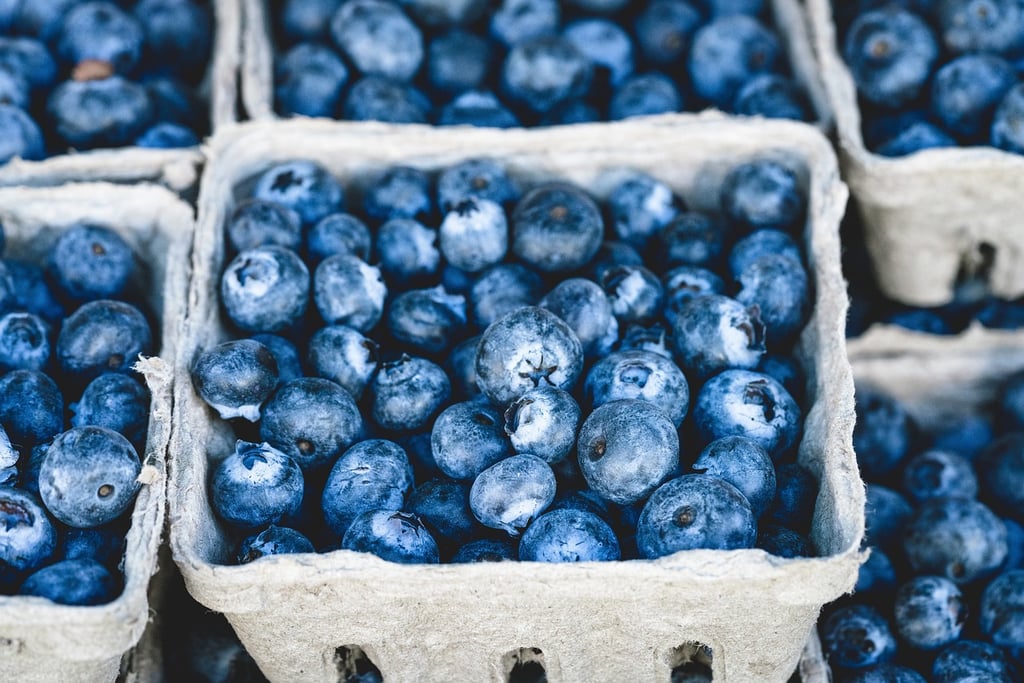
Blueberries are not a natural part of a duck's diet, but they can provide some nutritional benefits when fed in moderation. Here are some of the benefits:
| Benefit | Description |
|---|---|
| Rich in Antioxidants | Blueberries are packed with antioxidants, which help protect the cells from damage caused by harmful free radicals. |
| Vitamin C Boost | These berries are a good source of vitamin C, which plays a vital role in boosting the immune system of ducks. |
| Improved Digestion | The high fiber content in blueberries can aid in digestion and prevent digestive problems in ducks. |
| Heart Health | Blueberries contain heart-healthy nutrients like potassium and anthocyanins, which may support cardiovascular health in ducks. |
Although blueberries have these benefits, it's important to remember that they should only be fed as an occasional treat and should not replace a duck's regular balanced diet. Additionally, it's essential to introduce new foods gradually and monitor any potential adverse reactions.
Potential Risks of Feeding Blueberries to Ducks
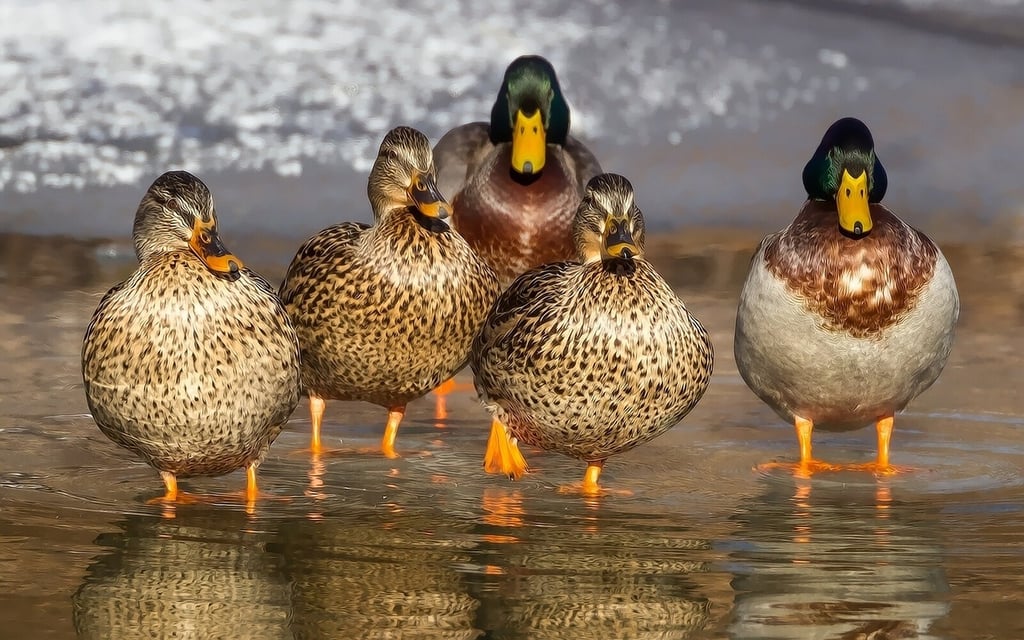
While blueberries can be a healthy addition to many animals' diets, including humans, it's important to consider the potential risks associated with feeding blueberries to ducks. Here are some aspects to be aware of:
| Risks | Explanation |
|---|---|
| Gastrointestinal Upset | Some ducks may experience digestive issues if they consume large quantities of blueberries. These fruits contain fiber, which in excess can lead to loose stools or diarrhea in ducks. |
| High Sugar Content | Blueberries have a relatively high natural sugar content, which can be a concern for ducks that already have underlying health conditions, such as obesity or diabetes. Excessive sugar intake may lead to weight gain and other complications. |
| Pesticide Exposure | If blueberries are conventionally grown and not thoroughly washed, ducks might ingest harmful pesticides present on the surface of the fruits. Pesticides can potentially be toxic to ducks and may have adverse effects on their health. |
| Choking Hazard | Ducks, especially young ones, have relatively small beaks and may have difficulty swallowing whole blueberries. There is a risk of choking if the blueberries are not adequately sized or if the duck tries to swallow them whole. |
To ensure the well-being of ducks, it is crucial to feed them a balanced diet that meets their nutritional needs while minimizing potential risks. While blueberries can be offered as an occasional treat, moderation and proper preparation are key.
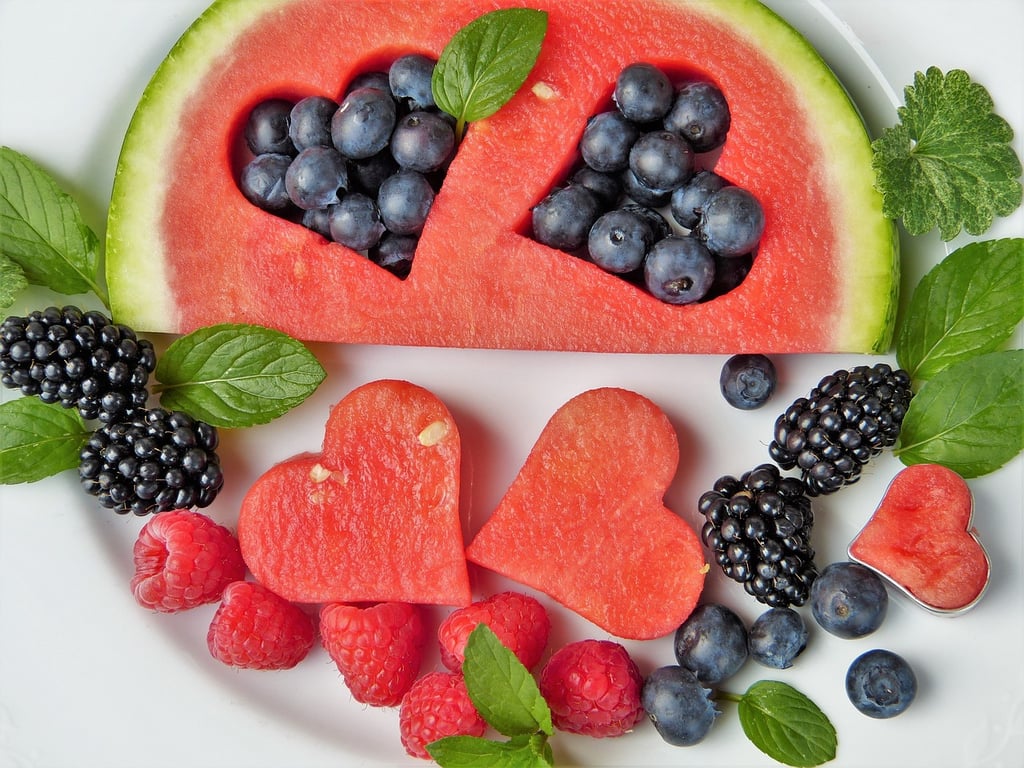
- Limit the quantity: Limit the amount of blueberries given to ducks to avoid overwhelming their digestive systems and prevent excessive sugar intake.
- Wash thoroughly: If feeding blueberries to ducks, make sure to thoroughly wash them to remove any pesticide residues that might be present.
- Consider alternative options: Instead of solely relying on blueberries, consider offering a variety of other fruits and vegetables that are safe and nutritionally beneficial for ducks.
- Consult a veterinarian: If you are unsure about incorporating blueberries or any other food into a duck's diet, it's always a good idea to consult a veterinarian who specializes in avian health for guidance and personalized recommendations.
How to Safely Incorporate Blueberries into a Duck's Diet
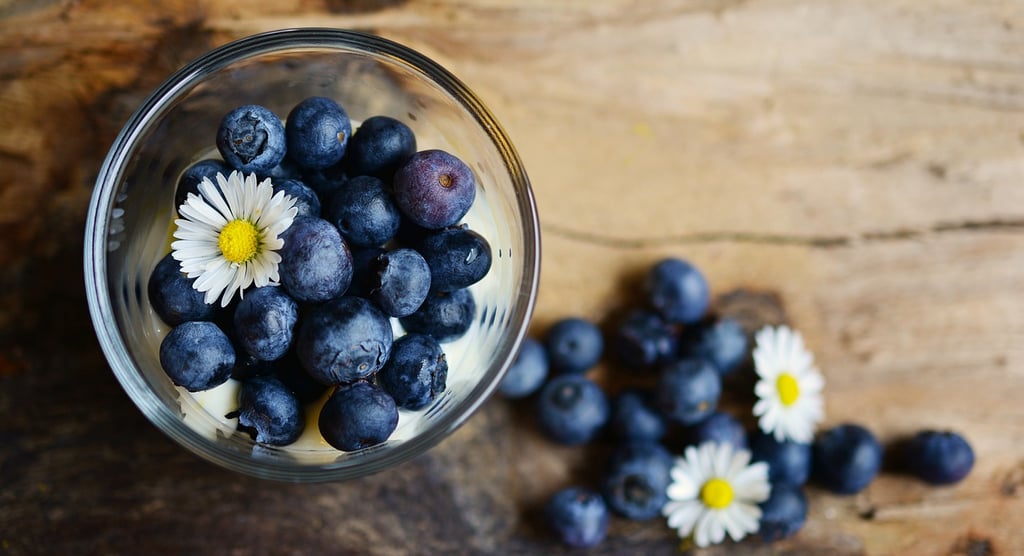
Ducks can enjoy a varied diet that includes a range of fruits and vegetables. Blueberries are a popular fruit beloved by many, and you might be wondering if they can be safely included in a duck's diet. Here are some important considerations and guidelines for incorporating blueberries into a duck's diet:
| 1. Introduction |
|
Before adding any new food item to a duck's diet, it is essential to understand their natural diet and nutritional needs. |
| 2. Assessing Nutritional Benefits |
|
Blueberries are considered a nutritious fruit for humans, and they can also provide some benefits to ducks. They are rich in antioxidants, vitamins, and minerals that support overall health and immune system function. |
| 3. Moderation is Key |
|
While blueberries can be included in a duck's diet, they should be offered in moderation. Too many blueberries in their diet can upset their digestive system and lead to an imbalance in nutrients. |
| 4. Preparing Blueberries for Ducks |
|
It is important to clean the blueberries thoroughly before feeding them to ducks. Rinse them to remove any pesticides or harmful residues that may be present. |
| 5. Serving Guidelines |
|
Chop the blueberries into small, manageable pieces to make it easier for the ducks to eat. Avoid feeding them whole blueberries, as it can pose a choking hazard. |
| 6. Offer a Balanced Diet |
|
Blueberries should be part of a balanced and varied diet for ducks. They should not be the sole focus of their diet. Ducks also require other essential nutrients found in grains, proteins, and other vegetables. |
Remember, it's always a good idea to consult a veterinarian or avian specialist for specific dietary recommendations tailored to your duck's needs. With proper moderation and consideration, blueberries can be a tasty and nutritious addition to a duck's diet.
Alternative Fruits and Vegetables Ducks Can Eat
 In the wild, ducks primarily feed on a combination of aquatic plants, grasses, insects, small fish, and invertebrates. Their natural diet provides them with the necessary nutrients and energy to survive and thrive. Ducks require a balanced diet that consists of protein, carbohydrates, fats, vitamins, and minerals. These nutrients support their growth, feather health, energy levels, and immune system. Blueberries are rich in various nutrients, including antioxidants, vitamins C and K, and dietary fiber. While not part of their natural diet, feeding blueberries to ducks in moderation can offer certain health benefits. The antioxidants in blueberries help boost their immune system, while vitamin C aids in collagen production and overall tissue health. While blueberries are generally safe for ducks when offered in moderation, there are a few potential risks to be aware of. Feeding ducks excessive amounts of blueberries or other fruits can disturb their natural foraging behavior and lead to an imbalanced diet. Additionally, the high sugar content in fruits can cause digestive upset or weight gain if consumed excessively. If you decide to offer blueberries to ducks, it is important to do so in a safe and controlled manner. Here are a few guidelines to follow:
In the wild, ducks primarily feed on a combination of aquatic plants, grasses, insects, small fish, and invertebrates. Their natural diet provides them with the necessary nutrients and energy to survive and thrive. Ducks require a balanced diet that consists of protein, carbohydrates, fats, vitamins, and minerals. These nutrients support their growth, feather health, energy levels, and immune system. Blueberries are rich in various nutrients, including antioxidants, vitamins C and K, and dietary fiber. While not part of their natural diet, feeding blueberries to ducks in moderation can offer certain health benefits. The antioxidants in blueberries help boost their immune system, while vitamin C aids in collagen production and overall tissue health. While blueberries are generally safe for ducks when offered in moderation, there are a few potential risks to be aware of. Feeding ducks excessive amounts of blueberries or other fruits can disturb their natural foraging behavior and lead to an imbalanced diet. Additionally, the high sugar content in fruits can cause digestive upset or weight gain if consumed excessively. If you decide to offer blueberries to ducks, it is important to do so in a safe and controlled manner. Here are a few guidelines to follow:
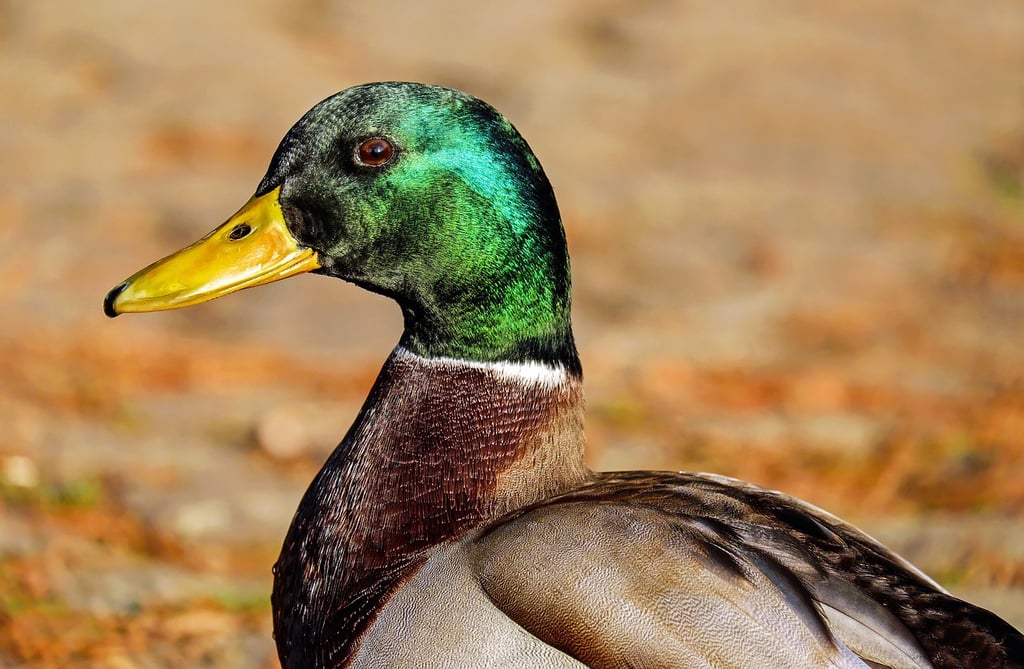
- Offer blueberries as an occasional treat, rather than a primary food source.
- Introduce blueberries gradually to allow ducks to adjust to this new food item.
- Wash blueberries thoroughly to remove any pesticides or residues before feeding them to ducks.
- Cut the blueberries into small, manageable pieces to make it easier for ducks to eat.
- Monitor your ducks closely for any adverse reactions after consuming blueberries.
| Fruits | Vegetables |
|---|---|
| Apples | Leafy greens (spinach, lettuce) |
| Watermelon | Cucumbers |
| Grapes | Carrots |
| Berries (strawberries, raspberries) | Peas |

